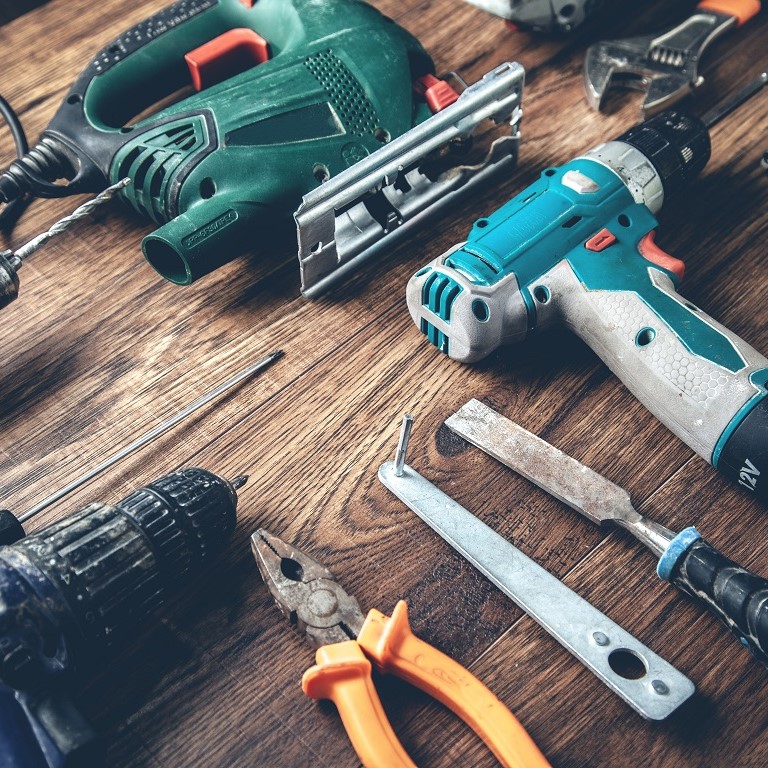With the UK economy taking tentative steps out of recession,1 and the trades bouncing back to growth after suffering severe disruption during the summer months of 2020,2 now might be the ideal time to become a self-employed electrician.
It seems that, for skilled electrical contractors going self-employed, there is unlikely to be a shortage of work – with electricians allowed to continue working during the latest lockdown,3 and contractors benefiting from a backlog of delayed construction projects and non-essential work in people’s homes.2
What’s more, becoming a self-employed electrician can bring a host of benefits – from the chance to specialise or pick and choose the projects you work on, to being able to set your own rates and take control over how, and when you work.
However, if you are planning to go it alone, there are a number of important issues to consider before you take the plunge – and dealing with them effectively could be vital to getting started on a sound footing.
Becoming a self-employed electrician: before you start
Before you can really get started, there are some legal and tax-related tasks you’ll need to complete.
First of all, you will need to inform HMRC of your change in circumstances. That means registering as a sole trader, which you can do online. You will also need to register as self-employed since your new status will mean you have to pay tax through self-assessment, as well as Class 2 and 4 National Insurance Contributions – again, you can do this online.4
On top of that, it is worth considering setting up a business bank account, to help keep your business and personal finances separate and make life easier when it comes to working out your self-employed income and calculating the tax you need to pay each year.4
In addition, it’s important to remember that your tax bill will be based on your profit as a self-employed electrician, so it’s really important to put in place an easy way to record your self-employed income and expenses – which will make life much easier when the time comes to prepare your annual self-assessment tax return.4
Get help from an accountant
If you have never worked on a self-employed basis before, the set-up administration, the day-to-day job of recording your income and expenses, and preparing your annual tax return, can be daunting and time consuming – especially as HMRC can apply financial penalties if you get things wrong.5
However, you can minimise the risk of making potentially costly mistakes and reduce your admin workload by working with an experienced, competent accountant to help with everything from sole trader registration and book-keeping, to annual returns, and tax.
Self-employed electrician business plan
As well as getting that groundwork done, it is also important to plan ahead, to think about the kind of self-employed electrician you want to be. That means thinking about your own experience and which kinds of electricians are in demand in your area – commercial, domestic or more specialist skills for instance.6
But you also need to think about how you are going to promote yourself. Will you be able to rely on word of mouth, should you look at advertising in local papers and shops, leafleting, or investing in a website and digital marketing?
Finally, think about pricing. It’s a balancing act, because you need to make enough from every hour you work to earn a comfortable income, but charging too much can put customers off. Remember that you won’t get paid for the time you spend putting together quotes, for business administration or for holidays – so it is important you think carefully about how you plan to charge for your time, and how much.7
Electricians’ tools
Clearly, electrical work requires not just specialist knowledge and skills, but tools too. Think carefully about the tools you already have and identify any you’ll need to buy as part of your plan to become a self-employed electrician.
Given the nature of the work, a vehicle will be important too – a reliable, secure car or van to carry you, your tools, and materials to and from every job.
Having a realistic idea of those costs before you start could help avoid unpleasant surprises later.
Self-employed electrician accreditation and support
Your ability to make a success of your decision to go self-employed will depend on customers having confidence that you are professional, trustworthy and have the skills and knowledge required to carry out safe electrical work.
Registering as an accredited NICEIC contracting firm can be completed in three weeks8 and helps to give customers the peace of mind they need ‒ it also offers a wealth of support to help you make a success of your work as a sole trader electrician.
Protect your livelihood
Finally, don’t forget that as a self-employed person, you won’t be able to call on the support of an employer if things go wrong – if an incident leaves you unable to work, you won’t have any money coming in.
That is why, if you are thinking of becoming a self-employed electrician, it is vital you don’t forget about business insurance. It could be the most important tool in your bag ‒ there to help protect your livelihood should things go wrong.
Some of the most important insurance covers to think about are:
Self-employed electricians public liability insurance
This helps cover legal costs and compensation if someone is injured or their property is damaged because of your work.
Self-employed electricians’ personal accident insurance
What happens if an accident or injury leaves you unable to work? Who will pay the bills? This cover can help to cover lost income and medical costs.
Self-employed electricians’ tools insurance
The right tools insurance can help get you back to work quickly and protect your finances if your tools and equipment are lost or stolen. Be mindful of insurance policy exclusions – for instance, some policies won’t cover your losses if tools have been left in a van overnight.
Self-employed electricians’ commercial vehicle insurance
For most electricians, a van or other business vehicle is vital to getting to and from each job. This cover helps to get your business back on the road quickly if your van is stolen or damaged in an accident.
In summary, becoming a self-employed electrician can be a rewarding choice – giving you freedom and control over your work – but careful planning and preparation are really important to making a solid start, and the right self-employed electrician’s insurance cover could be vital to protecting your livelihood should the worst happen.
Sources
1. bbc.co.uk/business
2. uk.style.yahoo.com/coronavirus-trades-gdp-business-uk-back-normal-rebound-economy
3. workever.com/which-tradespeople-can-still-work-during-lockdown
4. tradeskills4u.co.uk/guide-to-going-self-employed
5. gov.uk/penalties-an-overview-for-agents-and-advisers
6. startups.co.uk/how-to-become-an-electrician
7. smallbusinesstoolbox.uk/how-much-should-i-charge
8. niceic.com/join-us
Get the right cover at the right price

